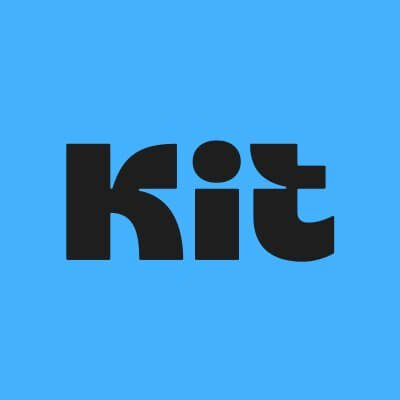How to Write a Good Assignment on Social Media Marketing Without Falling into the Plagiarism Trap

In the fast-evolving world of digital communication, social media marketing (SMM) has emerged as one of the most dynamic and rewarding fields of study. Students across disciplines are now expected to master its principles, strategies, and analytical tools. As academic expectations rise, so does the pressure to deliver a good assignment—one that is original, insightful, and in line with academic integrity.
However, the speed and accessibility of information online have made it easier than ever to fall into the plagiarism trap, intentionally or not. In this article, we will explore how students can produce high-quality assignments on social media marketing while maintaining authenticity and originality.
Understanding Social Media Marketing in an Academic Context
At its core, social media marketing is the process of promoting products or services via platforms like Facebook, Instagram, LinkedIn, X (formerly Twitter), TikTok, and others. In academic settings, students are typically asked to:
-
Analyze real-world case studies
-
Create campaign strategies
-
Evaluate marketing metrics
-
Understand audience targeting
-
Assess ethical and legal considerations
A good assignment in this field goes beyond repeating definitions or copying textbook content. It demonstrates a student's ability to apply theoretical knowledge to practical scenarios while offering original insights backed by credible research.
The Elements of a Good Assignment in Social Media Marketing
Here’s what makes a good assignment stand out, especially in a digital marketing course:
1. Clear Structure and Flow
Start with an engaging introduction that outlines your objective. Use headings and subheadings (like in this article) to organize your content. A logical structure helps guide your reader through your arguments.
2. Current and Credible Sources
Social media trends evolve daily. A good paper will reference up-to-date sources—industry reports, academic journals, and reputable blogs (like HubSpot or Hootsuite). Avoid relying on outdated statistics or unsupported opinions.
3. Critical Thinking and Original Analysis
Instead of just describing a campaign, critically assess why it worked or didn’t. For example, if you’re analyzing Nike’s Instagram strategy, consider how the brand uses emotional appeal, storytelling, and influencer partnerships to boost engagement.
4. Visual Support
Social media marketing is inherently visual. Including screenshots of campaigns, graphs showing engagement rates, or even your own mock-up ads can strengthen your analysis and make your assignment more engaging.
5. Proper Referencing
Citing your sources is essential—not only for credibility but to avoid plagiarism. Use the citation style recommended by your institution (APA, MLA, Harvard, etc.) and be consistent throughout the paper.
Plagiarism: The Hidden Pitfall in Digital Research
With so many ready-made case studies and campaign breakdowns available online, plagiarism is a real threat. Even unintentional copying—like paraphrasing too closely without citation—can lead to serious academic consequences.
Common Causes of Plagiarism:
-
Copy-pasting content without attribution
-
Failing to paraphrase effectively
-
Using tools that scrape online content without editing
-
Submitting work written by AI or peers
Tips to Avoid Plagiarism:
-
Use plagiarism checkers (like Grammarly or Turnitin) before submission.
-
Paraphrase actively: Rewrite ideas in your own words while preserving the original meaning.
-
Take notes in your own voice as you research.
-
Reference all ideas, not just direct quotes.
Academic integrity isn't just about avoiding penalties—it’s about building credibility and respect in your field.
How Social Media Can Enhance Your Assignment (When Used Properly)
Interestingly, while social media can be a source of distraction or plagiarism risk, it can also enhance your assignment if used smartly.
1. Follow Industry Leaders
Marketing professionals often share insights, data, and commentary on current trends. Following experts like Neil Patel, Ann Handley, or Rand Fishkin can offer up-to-date examples and perspectives to enrich your work.
2. Gather Primary Data
Use Instagram Stories or LinkedIn polls to collect audience opinions on a topic you're researching. This type of primary data adds depth to your assignment and showcases initiative.
3. Monitor Trends with Hashtags
Use hashtags like #DigitalMarketing, #SMM, or #MarketingStrategy to discover current campaigns, audience reactions, and market shifts in real time.
A Case Study Example: Using TikTok for Brand Awareness
Let’s say your assignment involves evaluating how a brand uses TikTok for marketing. A good assignment would:
-
Provide background on TikTok’s user demographics
-
Describe the brand’s campaign (e.g., user-generated content or influencer partnerships)
-
Analyze engagement metrics and customer feedback
-
Offer suggestions for improvement or alternative strategies
This type of work demonstrates understanding, critical thinking, and originality—the hallmarks of excellent academic writing.
Final Checklist: How to Submit a Polished, Plagiarism-Free Assignment
Before you hit “submit,” run through this checklist:
-
Is the introduction clear and concise?
-
Have you used reliable, updated sources?
-
Are all ideas and quotes properly cited?
-
Have you used your own voice throughout?
-
Did you check for plagiarism using a detection tool?
-
Is your argument logically structured?
-
Did you proofread for grammar, tone, and clarity?
Conclusion
Writing a good assignment on social media marketing requires more than just a Google search and a few borrowed statistics. It demands research, originality, critical thinking, and a clear understanding of what constitutes plagiarism. As the digital landscape continues to evolve, so should your academic approach. By mastering these skills now, you’re not only avoiding academic pitfalls—you’re preparing yourself for real-world success in one of today’s most exciting industries.
Author Bio
Hazel Rustin is a digital marketing enthusiast and freelance social media marketing writer with over seven years of experience in helping students craft compelling, plagiarism-free content. When she's not analyzing the latest social media trends, Hazel enjoys reading digital culture essays and experimenting with AI tools in creative writing. Follow her on LinkedIn for insights into marketing, education, and digital ethics.


































































![https //g.co/recover for help [1-866-719-1006]](https://newsquo.com/uploads/images/202506/image_430x256_684949454da3e.jpg)



























![[PATREON EXCLUSIVE] The Power of No: How to Say It, Mean It, and Lead with It](https://tpgblog.com/wp-content/uploads/2025/06/just-say-no.jpg?#)
















































